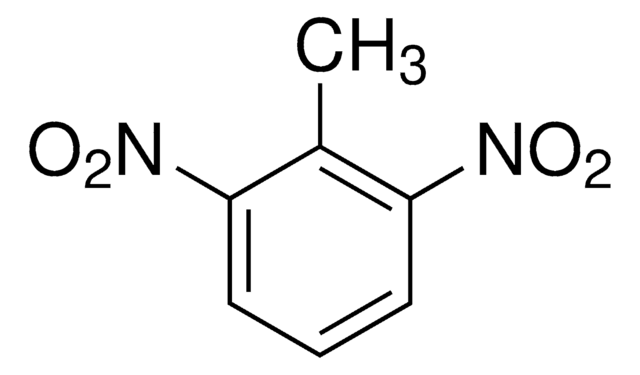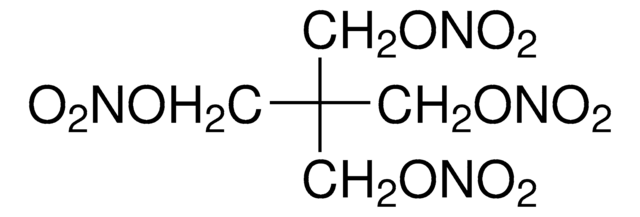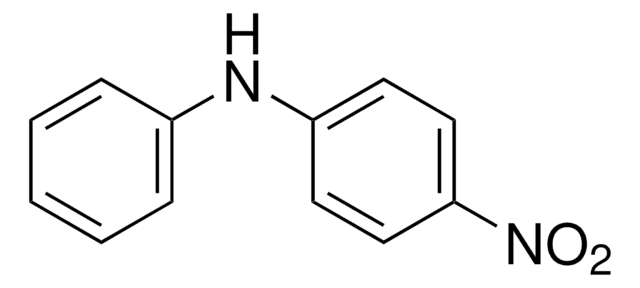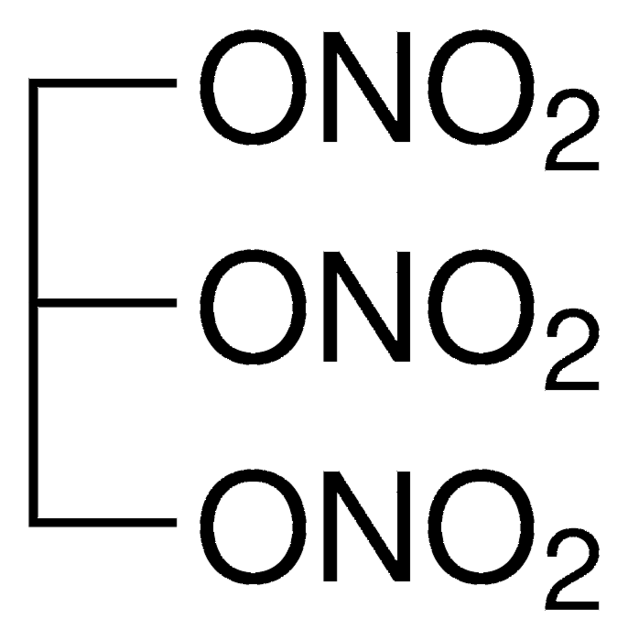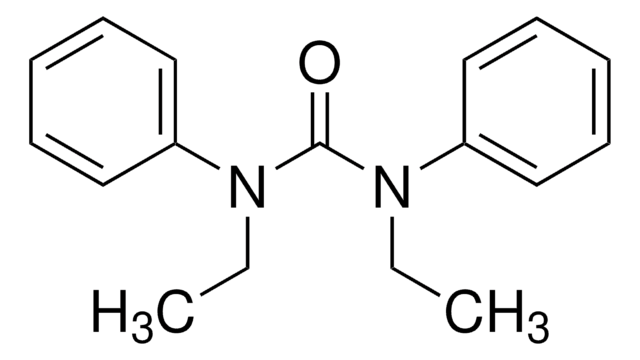ERT-107S
2,4,6-Trinitrotoluene solution
10 mg/mL in acetonitrile, ampule of 5 mL, certified reference material, Cerilliant®
Synonym(s):
TNT
About This Item
Recommended Products
grade
certified reference material
Quality Level
feature
Snap-N-Spike®/Snap-N-Shoot®
packaging
ampule of 5 mL
manufacturer/tradename
Cerilliant®
concentration
10 mg/mL in acetonitrile
application(s)
environmental
format
single component solution
storage temp.
−20°C
SMILES string
CC1=C([N+]([O-])=O)C=C([N+]([O-])=O)C=C1[N+]([O-])=O
InChI
1S/C7H5N3O6/c1-4-6(9(13)14)2-5(8(11)12)3-7(4)10(15)16/h2-3H,1H3
InChI key
SPSSULHKWOKEEL-UHFFFAOYSA-N
Looking for similar products? Visit Product Comparison Guide
General description
Application
Legal Information
Signal Word
Danger
Hazard Statements
Precautionary Statements
Hazard Classifications
Acute Tox. 4 Dermal - Acute Tox. 4 Inhalation - Acute Tox. 4 Oral - Eye Irrit. 2 - Flam. Liq. 2
Storage Class Code
3 - Flammable liquids
WGK
WGK 2
Flash Point(F)
35.6 °F - closed cup
Flash Point(C)
2 °C - closed cup
Choose from one of the most recent versions:
Certificates of Analysis (COA)
Sorry, we don't have COAs for this product available online at this time.
If you need assistance, please contact Customer Support.
Already Own This Product?
Find documentation for the products that you have recently purchased in the Document Library.
Our team of scientists has experience in all areas of research including Life Science, Material Science, Chemical Synthesis, Chromatography, Analytical and many others.
Contact Technical Service
